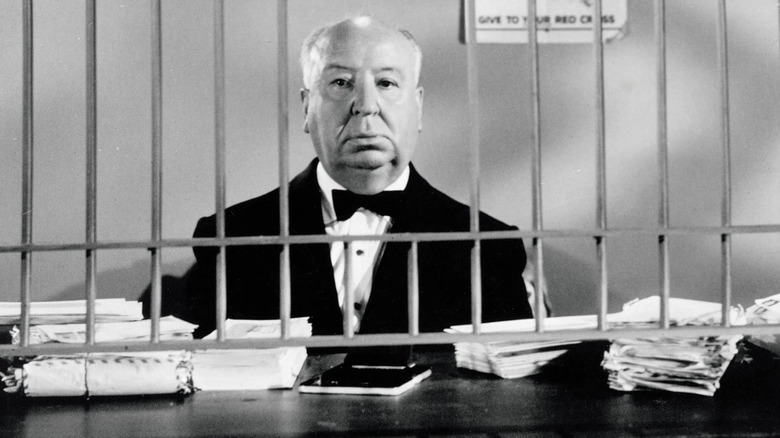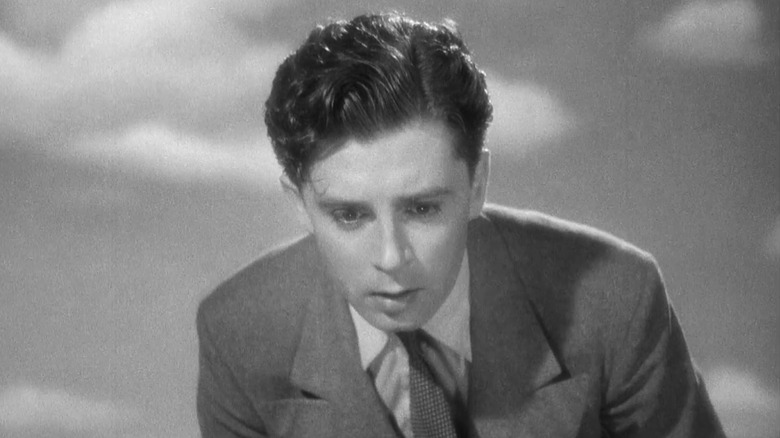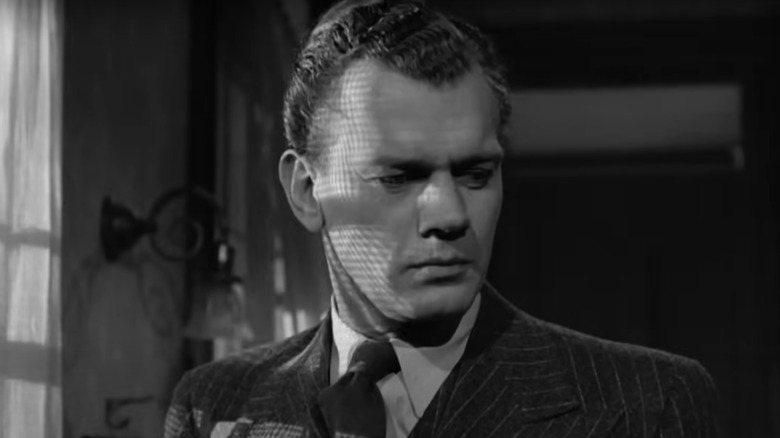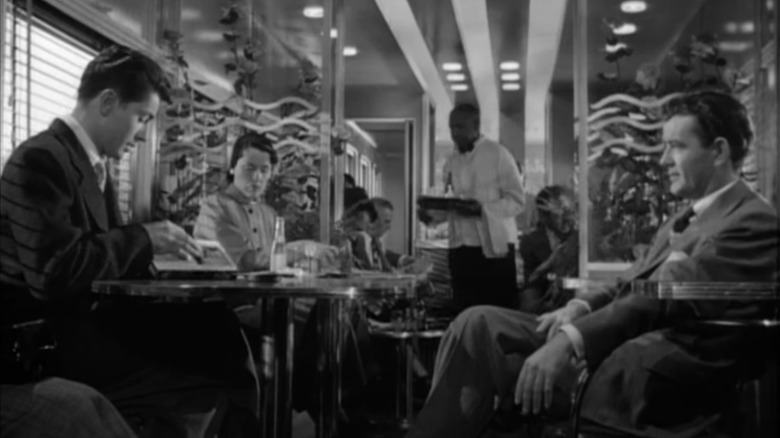There Are Two Perfect Alfred Hitchcock Movies, According To Rotten Tomatoes
When you think of the very best Alfred Hitchcock movies, you might think of, say, "Psycho" or "Vertigo." You might consider "The Birds" — controversial though it may be — as the director's finest moment, or "Rear Window" might spring to mind. But while these are all excellent examples of Hitch's undeniable directing talent, there's an impressive array of underrated Hitchcock movies worth watching.
Take "Strangers on a Train" for example. This 1951 thriller stars Farley Granger as Guy Haines and Robert Walker as Bruno Antony, who are, believe it or not, two strangers who meet on a train. The thing about Bruno, however, is that he's also a psychopath, and suggests to Guy that they "swap murders" so as to do away with Guy's estranged wife and Bruno's overbearing father. From Bruno's perspective, because both men will essentially be killing strangers, no one will suspect either of them. When Guy laughs off this nefarious plot, Bruno becomes convinced that Guy is actually willing to go along with it, leading to a classic Hitchcockian tale of an innocent man caught up in an illicit scheme. You might not hear about "Strangers on a Train" as much as you hear about "North by Northwest," but the film has earned itself a 98% rating on Rotten Tomatoes.
However, even "Strangers on a Train," with its 98% RT score, can't quite match what are, according to the review aggregator, the only two "perfect" Hitchcock films ever made.
The only two perfect Hitchcock films ever made
1943's "Shadow of a Doubt" contains one of the most iconic Hitchcock scenes of all time in Uncle Charlie's speech. Played by Joseph Cotten, Charlie is a serial murderer known as the "Merry Widow Killer," who visits his niece and her family in Santa Rosa, California. Of course, in classic Hitchcock fashion, the family initially doesn't know the horrifying truth about Charlie, but as the clues mount, so too does the suspense.
Now, the casual film fan might not have heard of "Shadow of a Doubt" as one of Hitchcock's finest, but if you ask Rotten Tomatoes, it's apparently one of only two "perfect" films the master of suspense ever produced. That is to say that this 1943 thriller currently holds a 100% Rotten Tomatoes score, meaning every one of the film's 53 reviews collected by the site is positive. I'm sure Hitchcock would be overcome with pride.
So, what's the other "perfect" Hitchcock movie, according to Rotten Tomatoes? That honor goes to 1937's "Young and Innocent," which has also bested the almighty Tomatometer. The tale of a man who may or may not have been wrongly accused of an actress's murder has a 100% RT score, based on 20 reviews. The fact that "Young and Innocent" has less reviews than "Shadow of a Doubt" might be why the 1937 crime thriller misses out on the "Certified Fresh" designation on the website, but I can't imagine Hitch would have been too perturbed.
What would Hitchcock think of Rotten Tomatoes?
You might be surprised to learn that "Shadow of a Doubt" and "Young and Innocent" are the only two Alfred Hitchcock films to ever achieve the coveted "perfect" RT score. A more well-known entry in his oeuvre, "Rear Window," currently has a 98% rating on the site, as do "Rebecca," "The Lady Vanishes," and the aforementioned "Strangers on a Train." But the real question here is the same as when watching any of Hitch's movies: what does any of this really mean?
It's kind of funny to think about what Hitchcock, who was never shy about which of his films he liked least, would have made of Rotten Tomatoes. In the case of "Young and Innocent," critics were impressed upon the film's debut, with The New York Times' Frank S. Nugent writing that the British thriller (known in the UK as "The Girl was Young") was a "crisply paced, excellently performed film." As such, the film likely would have enjoyed a similarly impressive RT score in the late '30s as it does today.
But when "Strangers on a Train," for example, first debuted in 1951, critics were divided. The New York Times' Bosley Crowthers, who sounds like a Hitchcock protagonist himself, was less than impressed, accusing the director of "tossing a crazy murder story in the air and trying to con us into thinking that it will stand up without support." It's Crowthers' review that's currently keeping "Strangers on a Train" from achieving a 100% RT score. These trivialities can make the difference between a "perfect" score and one in the high-90s, which should tell you something about how seriously to take a 100% RT rating.
Shadow of a Doubt is Hitchcock-approved
Bosley Crowthers seemed to have it out for Hitchcock before "Strangers on a Train" — which happens to include the most dangerous scene Hitchcock ever shot — pointing out in his review that the filmmaker's previous film, "Rope," would be "remembered as a stunt (which didn't succeed)." More than 70 years later, I'm sure Crowthers would be delighted to know he's prevented a few Hitchcock masterpieces from flawless RT scores. But he didn't always seem to be anti-Hitch. Back in 1943, when "Shadow of a Doubt" released, Crowthers was mostly complimentary, calling the film a "bumper crop of blue-ribbon shivers and chills" even while lamenting the way "Mr. Hitchcock and/or his writers start weaving allegories in his films or, worse still, neglect to spring surprises after the ground has apparently been prepared."
But while Rotten Tomatoes or the thoughts of the reviewers it collects are all well and good, it's worth asking what Hitchcock himself thought. When prompted by Dick Cavett to pick a film of his that he would preserve over all others, the director selected "Shadow of a Doubt," noting simply that, "It was true. It was a character picture." So, if you're looking to investigate some lesser-known Hitchcock films, "Shadow of a Doubt" is a great place to start. As is "Young and Innocent," but if you're not particularly swayed by what Bosley Crowthers thinks, why not throw in "Strangers on a Train" just to spite the old boy.



